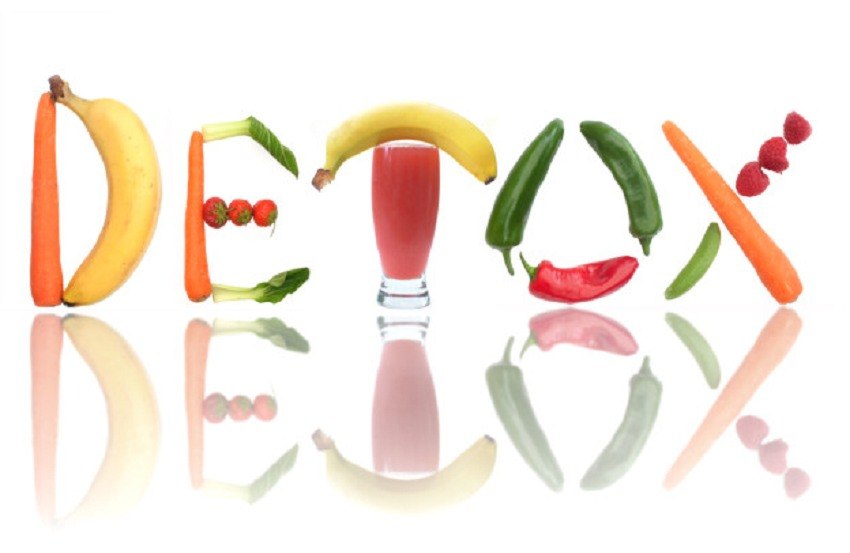Eating Clean: How To Detox Your Diet
 Health & Fitness
Health & Fitness
Summer offers more fresh produce and delicious, nutrient-dense foods. Plus, the growing demand for healthier foods in general brings us countless new products in the gluten-free section, low-glycemic sweeteners like coconut sugar and stevia, and an abundance of unique superfoods. So it’s now easier than ever to adopt a clean diet that’s free of artificial additives, sugars and other unhealthy ingredients.
Or is it?
The truth is it can be quite hard for many people who are accustomed to eating the Standard American Diet (SAD) to make the switch to a healthier way of eating. And research shows that junk foods and processed meals can be quite addictive. As an integrative practitioner, I often see these patterns. We’re hard on ourselves because it seems like such a simple problem to solve: Eat healthier, exercise more and look and feel great! Yet we still struggle. The fact that millions of others also fail at the same goal offers no consolation. We just don’t understand why we fall short.
In other words, if protecting or restoring good health and longevity doesn’t motivate us to eat better, what can? Why are good dietary and lifestyle changes, which are the most affordable and effective paths to better health, so difficult?
This problem has led researchers to study why it’s so hard to resist the temptation of unhealthy foods. Importantly, this work has revealed effective strategies you can use to clean up your diet.
How To Exercise Your Willpower
Perhaps you’ve heard someone say that the brain is a muscle and, like any muscle, it needs exercise to stay in shape. The same can be said about willpower.
One approach to ending cravings is to exercise mindfulness. By thinking about your cravings in a certain way, you can learn to overcome them.
One researcher taught smokers to resist temptation by visualizing their urge to smoke as waves — passing phenomena rather than permanent fixtures. They were shown how to be mindful of the cravings, analyze how these urges influenced their minds and bodies and ultimately overcome them.
This simple approach produced excellent results. Participants who received mindfulness training reduced their smoking significantly. Meanwhile, the control group, who received no instruction, kept smoking just as heavily.
As with many habits, your environment matters. Stress, for example, makes it difficult to make good decisions. It’s hard to be mindful, to take a few extra moments to reflect on your choices, you’re in an all-out rush.
That may seem obvious, but there are even more fundamental processes at play. Parts of the mind associated with restraint and careful judgment simply get turned off by stress hormones. No doubt this was an important survival function for our ancestors, but now it simply paves the way for impulsive choices you regret later.
Certain Foods Affect Willpower
On a day-to-day basis, what we eat is a significant part of the problem. Processed foods boast endless lists of chemical ingredients that are shown to directly influence the brain and central nervous system. These foods can create a type of chemical dependence in the brain, similar to drug addiction.
We know this is true because almost all of us have experienced it. Despite the best intentions, one piece of junk food leads to another. The problem is not willpower; it’s how you metabolize food. Processed foods are, to some degree, pre-digested. They are quickly metabolized and converted to glucose, or blood sugar. The body reacts rapidly, secreting insulin to tell cells to take in sugar. Soon, glucose levels plummet and that egg roll you were avoiding becomes almost irresistible.
New research shows that a blood sugar spike is frighteningly similar to a cocaine high. Once the initial rush dissipates, your brain commands you to get more. To make matters worse, these glucose spikes yield a cumulative effect. People who abuse drugs and alcohol become desensitized, and a number of studies are showing that people who abuse food have a similar experience. They simply need more to get that same rush.
So let’s reframe the discussion. We’re not fighting weak self-control; we’re fighting eons of evolutionary biology. This internal wiring can be a barrier or a tool — it’s your choice.
Control Cravings By Eating Whole Foods
Understanding the biology behind cravings can help us overcome them. Just as our bodies and minds react poorly to unhealthy foods, they respond well to better choices. Granted, to lose weight, we will have to cut down on calories. But the most important change is adjusting what we eat.
We know that processed grains, simple carbohydrates and sweets create unhealthy, and counterproductive, blood sugar spikes. To avoid these, we simply modify our food selections. Emphasize vegetables with lots of fiber and water. These tend to satiate the appetite longer. Lean proteins, omega-3 fats, sprouted grains and legumes, raw nuts and seeds, and brightly colored fruits and vegetables can help promote healthy blood sugar and metabolic balance. Be sure to drink plenty of filtered water as well — it’s believed that many cravings are actually signs of dehydration.
Enhance Willpower With Herbal Remedies
Nature is replete with botanical and nutritional ingredients that reduce unhealthy cravings and maintain healthy glucose levels. American ginseng, medicinal mushrooms, seaweed alginates, kudzu root, chromium polynicotate and alpha lipoic acid are just a few examples. These botanicals and supplements help balance glucose metabolism, ensuring that blood sugar levels never go too low or too high and that cells get all the energy they need to function well. They also reduce unhealthy food cravings and help you shift to healthier, more nutrient-dense choices. I recommend a specific metabolic formula containing these and other herbs and nutrients to help enhance metabolic efficiency, reduce cravings, support sugar and fat absorption, and balance glucose and insulin.
Exercise is also a necessary part of the equation, but it doesn’t have to be too strenuous. Simply walking 30 minutes a day can do wonders. There are also exercises that tone the body and quiet the mind. Yoga, Tai Chi and Qi Gong are excellent options. Because these practices focus on breathing, they restore natural calm. The stress and anxiety that so often dominates our lives just melts away.
Remember, diet is not something you do occasionally — you do it all day, every day. The question is what kind of diet you choose. By mindfully selecting foods and ingredients that support a healthy metabolism, you can reduce cravings and reset your body to a new level of energy and vitality. Pretty soon, wholesome nutrient-dense food is all you want on our plate.
Source: betterhealthpublishing.com




